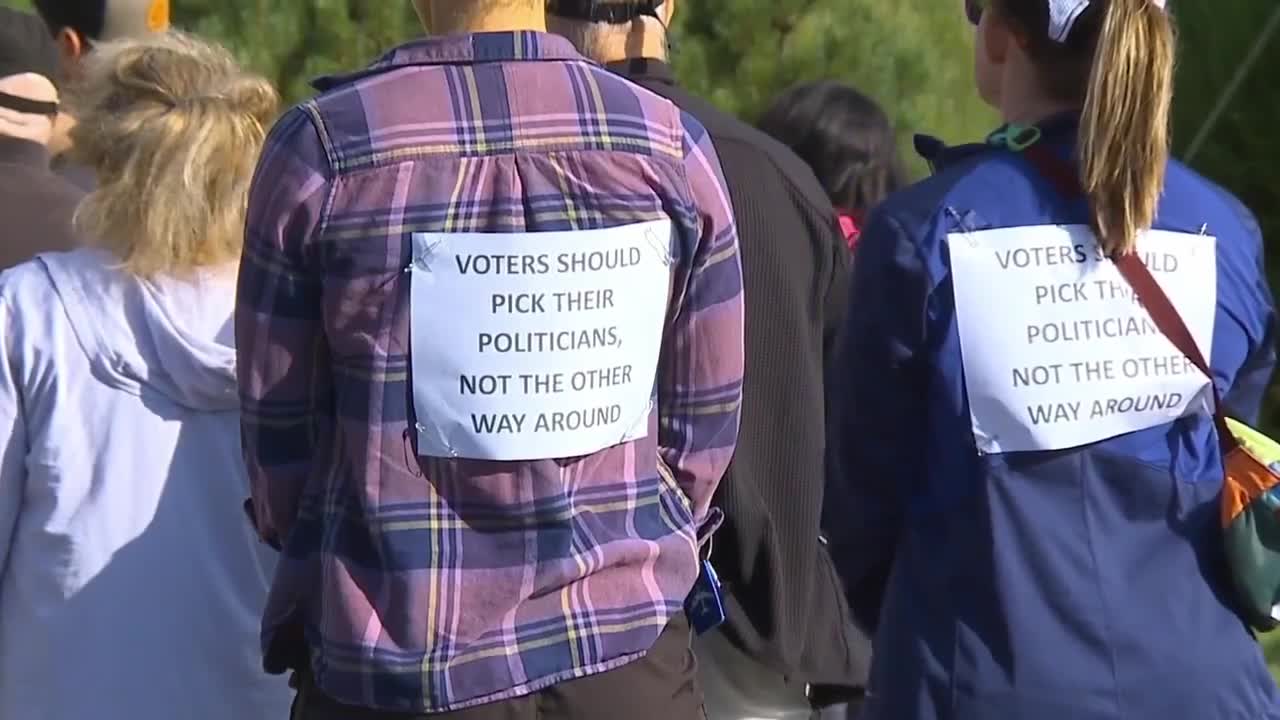SALT LAKE CITY — Governor Spencer Cox told FOX 13 News he is willing to call the Utah State Legislature into a special session to resolve the issue of redistricting.
"That's going to be up to the legislature. The ball is in their court there. I have not heard from them," he said during a brief interview on Wednesday. "I've had some conversations with the Speaker and the President. I know they're meeting with their attorneys. They're looking at the ruling and whether to appeal that."
But the governor also said he supports the legislature's arguments that it has the sole constitutional power to decide congressional boundaries.
"If you read the plain language of the Constitution, it says that duty belongs to the legislature. There's nothing that's changed my mind on that," he said, adding: "But also... I stand behind the courts and will follow whatever the courts decide."
After Utah redistricting ruling, advocates and lawmakers plan for new fights:
Earlier this week, 3rd District Court Judge Dianna Gibson sided with the League of Women Voters of Utah and Mormon Women for Ethical Government, who sued the legislature arguing that the maps it adopted bypassed the voter-approved Proposition 4 (creating an independent redistricting commission) and gerrymandered districts to favor Republicans. Judge Gibson gave the legislature 30 days to come up with new maps consistent with Proposition 4, that she declared was law in Utah.
Better Boundaries, the group that ran Prop. 4, is mounting a campaign to pressure the legislature not to appeal Judge Gibson's ruling and to adopt new maps. Senate Majority Leader Kirk Cullimore, R-Sandy, told FOX 13 News that Republican leaders on Utah's Capitol Hill are still evaluating their next steps.
"We want to do what's not just legally right, but also we want to solve the political situation as well, right? Because this is dividing a lot of people, it’s dividing the state," he said. "And I think there is a path forward if people can come together, cooperate and recognize what’s at stake here."
While Sen. Cullimore said they maintain it is the legislature's sole constitutional authority to draw boundaries, he is hopeful that some form of compromise can be reached.
"That's the art of politics, right? It’s compromise. Certainly, I think everything's on the table right now. What a compromise looks like is difficult to say," he said. "I mean, when you draw lines, it's necessarily political. And so even new maps, not everybody's going to be happy with them, one way or the other. Eventually, everybody's going to have to settle down and, you know, life's going to have to move forward at some point when lines are put to paper."
Any compromise would need the approval of his colleagues in both the House and Senate. But even Democrats, who have supported Prop. 4 and independent redistricting, have expressed hope for a path forward. House Minority Whip Jennifer Dailey-Provost, D-Salt Lake City, said in 2021 she proposed a substitute map on the House floor that was rejected and suggested perhaps it could be revisited now.
"I did propose an amendment that put forth a substitute map to the one that was ultimately adopted by the legislature," she said, adding it was one of the independent commission's maps.
In response to Sen. Cullimore's comments, Katharine Biele, the president of the League of Women Voters of Utah and a plaintiff in the redistricting lawsuit, said she would be willing to engage in discussions of a compromise.
"Compromise was the heart of Better Boundaries and Prop. 4, so of course we can find compromise. There was compromise in the three different maps created by the independent commission," she said Wednesday. "Unfortunately, that compromise was thrown out."
Biele told FOX 13 News she is willing to negotiate in the future with lawmakers, as they are the people's representatives and "they should listen to us and we should listen to them."
"There are two words that actually sum up this whole thing: One is respect — and by the very nature of government — we respect the legislature," Biele said. "The other is trust. We’re not sure we trust them yet."




